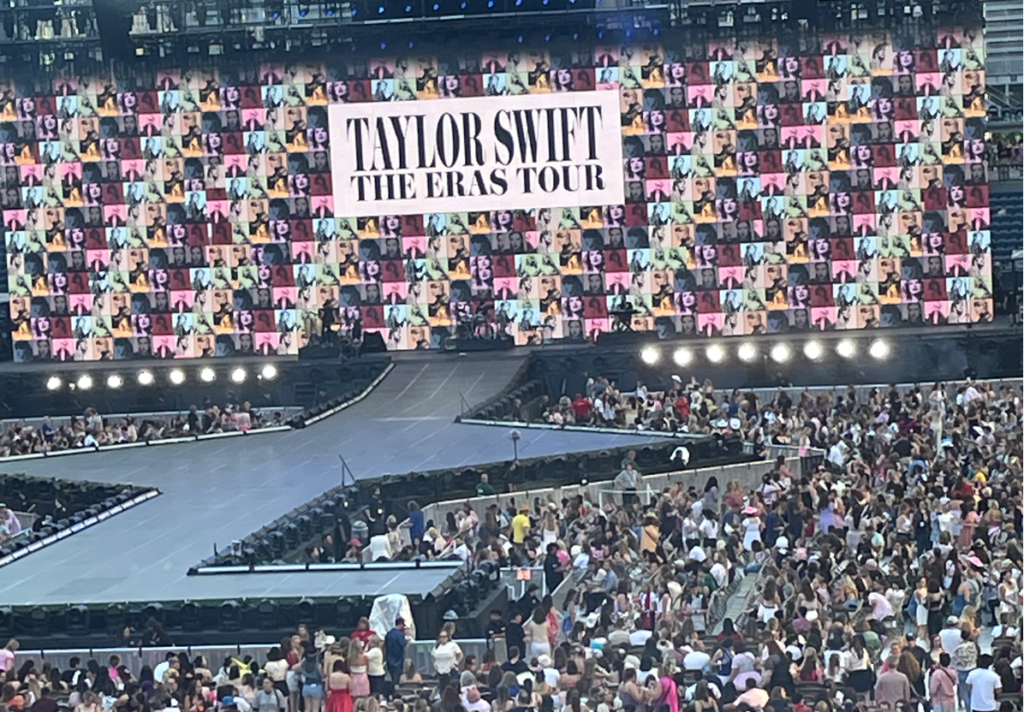
3 Fintech News Stories
#1: All You Had to Do Was Stay
What happened?
Karat has raised a $70 million Series B and is expanding its product:
Y Combinator-backed Karat’s first product was a business credit card that provides creators higher limits based on their social and financial stats instead of FICO scores. But the company’s now looking to expand its offerings with a card that builds personal credit history.
Having built out the base card business, Karat is shifting its attention to the aforementioned new card — the one focused on personal credit history — in partnership with Visa. As holders of the new card make on-time payments, Karat, which won’t require a hard credit pull for the card, says it’ll report the payments to major credit bureaus — much like a typical credit card company.
The new Karat card will come with standard benefits like reimbursement for items stolen or damaged within 90 days of purchase. But it’ll also offer creator-specific rewards like access to “member experiences” at industry events such as VidCon and VidSummit.
Cardholders will also have the opportunity to upgrade to personalized bookkeeping and tax services through Karat. Or — if they prefer not to pay — the platform will provide fee-free tools for tracking business write-offs with the card.
So what?
OK, first, a quick rant – despite the headline, it’s not really a $70 million round. It’s a $40 million equity round + $30 million in debt financing. Combining both numbers together, in order to look more impressive, is a violation of the Mikula Rule. It’s also counterproductive. A startup’s goal should be to build a machine that can predictably generate more cash than it eats. As a startup ages, it should be getting more efficient at this and, presumably, less reliant on huge influxes of financing from investors. Announcing a massive, late-stage round is a bad signal, not a good signal!
Now, on to Karat:
- Regardless of the actual amount, I’m impressed they were able to raise a Series B in this environment. Many other B2C fintech lenders haven’t been able to do that.
- I like the personalized bookkeeping and tax services. That’s a smart premium service to add on.
- Bragging about reporting your customers’ on-time payments to the credit bureaus is a bit of a weird flex (since all credit cards do this), but whatever.
The thing I wonder about is the underwriting:
No business can possibly hope to predict viral trends, especially in the creative content space. But Karat makes an effort to minimize risk using an underwriting model it developed in-house, the details of which remain under wraps.
“Karat analyzes creators’ cross-platform success, looking at factors like social reach, audience engagement, mix of platforms and monetization to create a more accurate picture of their business model,” Wei said, adding that Karat plans to add some form of machine learning to the model in the future. “This enables Karat to serve creator businesses that otherwise wouldn’t have access to capital.”
Well, first, I would definitely look into that machine learning thing. I’ve heard that it has shown some promise in this area.
More broadly, I wonder if any company will ever be able to really nail underwriting for content creators. In some ways, being a content creator is the opposite of being a traditional small business entrepreneur. Unlike a traditional small business (bakery, car wash, gutter cleaning, etc.), it’s incredibly easy to start creating content and monetizing it because of the abundance of great, free content-creation and audience-building tools.
My educated guess is that the rate of quitting in content creation is substantially higher than it is in traditional small business entrepreneurship (which tends to self-select for stubborn crazy people who are more than willing to go down with the ship). If true, this would make underwriting loans for full-time content creators, based on the performance of their business, really tricky. The business looks promising, but how do you know they’re going to stick with it?
#2: Bad Blood
What happened?
Toast added a fee:
Toast, which works with 85,000 restaurants in the US, is charging consumers a 99-cent fee for online orders over $10. The fee went into effect nationwide July 10 to fund ongoing innovation that levels “the playing field for restaurants” looking to keep digital orders in-house, the company said.
Toast, whose restaurant clients tend to be independent restaurants and regional chains, launched as a payments platform more than a decade ago. Toast’s tech stack has grown to include a slew of services for restaurants including pay-at-the-table devices, inventory management software, digital ordering systems, and a rewards program.
Join Fintech Takes, Your One-Stop-Shop for Navigating the Fintech Universe.
Over 36,000 professionals get free emails every Monday & Thursday with highly-informed, easy-to-read analysis & insights.
No spam. Unsubscribe any time.
So what?
Two things are odd about this.
First, why is Toast charging the fee for orders over $10? That’s basically the opposite of how all online ordering fees work (the more you spend, the fewer fees you should pay).
Second, and more importantly, why is Toast charging restaurants’ end customers directly? This, more than the fee itself, seems to really be pissing off Toast’s restaurant clients, and I completely understand why. Those end customers don’t belong to Toast. They don’t know who Toast is. They didn’t choose Toast. If you have to tack on a 99-cent fee, go for it, but give your clients the flexibility to eat the fee itself or pass it along to their end customers. Not doing so is just stupid. Imagine if I streamed four consecutive hours of content on Netflix and suddenly Amazon Web Services popped up on the screen out of nowhere and informed me that I had to pay a fee to keep watching. Ridiculous.
#3: Wildest Dreams
What happened?
Twitter has a new name and a much broader set of ambitions:
X is the future state of unlimited interactivity – centered in audio, video, messaging, payments/banking – creating a global marketplace for ideas, goods, services, and opportunities. Powered by AI, X will connect us all in ways we’re just beginning to imagine.
So what?
I’m of two minds on this.
My hopelessly-addicted-to-Twitter brain is sad because this would seem to indicate an acceleration of Elon Musk’s plan to completely disassemble everything that Twitter has been and attempt to reassemble it into the buzzword salad above. There’s something inherently unfair about one Twitter addict ruining the app for all of the rest of us just because he can’t competently spend $44 billion.
My fintech analyst brain, on the other hand, is thrilled. I’ve long been a proponent of the idea that super apps won’t work in America. But we’ve never really been able to test that hypothesis. Now we can! Elon wants to build a super app that combines social media, messaging, commerce, payments, and banking. Personally, I think that’s lunacy! I think that trust is an inherently important component of any strategy that includes financial services, and no one in their right mind should or will trust Elon with their money. But maybe I’m wrong! [Insert obligatory disclaimer about what a genius Elon Musk is and what amazing companies Tesla and SpaceX are.] I guess we’ll see!
2 Fintech Content Recommendations
#1: Defying the Orthodox (by Dan Kimerling, Deciens)
Dan is one of the smartest and most honest investors that you’ll meet.
This essay is a good example of why.
In it, Dan lays out a few of the misguided beliefs that guide orthodox VC firms and the destructive behaviors that emerge from those beliefs.
My favorite misguided belief is that there is little a VC can do to substantively change the trajectory of a company’s outcome. That one drives me absolutely crazy! “Let me know how I can be helpful” are just words from most VCs. We should expect more.
#2: Did Anyone Ask for In-Car Payments? (by Matthew Goldman, CardsFTW)
You should be reading Matthew’s newsletter. The dude has forgotten more about credit cards than I’ll ever know.
I loved this one.
Matthew rightly points out that, with the exception of a few specific use cases like toll booths and fleet payments, there is very little reason to turn our cars into payment devices. I have thought the same for a while, and I am glad to see I’m not the only one.
1 Question to Ponder
What are the best resources for me to learn about the history, performance, and evolving strategy of PayPal?
I’m considering writing a deep dive into the company and all of the sliding doors moments in its history (and the history of fintech).
If you have any good resources (books, articles, podcasts, etc.) to recommend, or if you have some insights into the company that you’d like to share directly (and off the record), please let me know!



